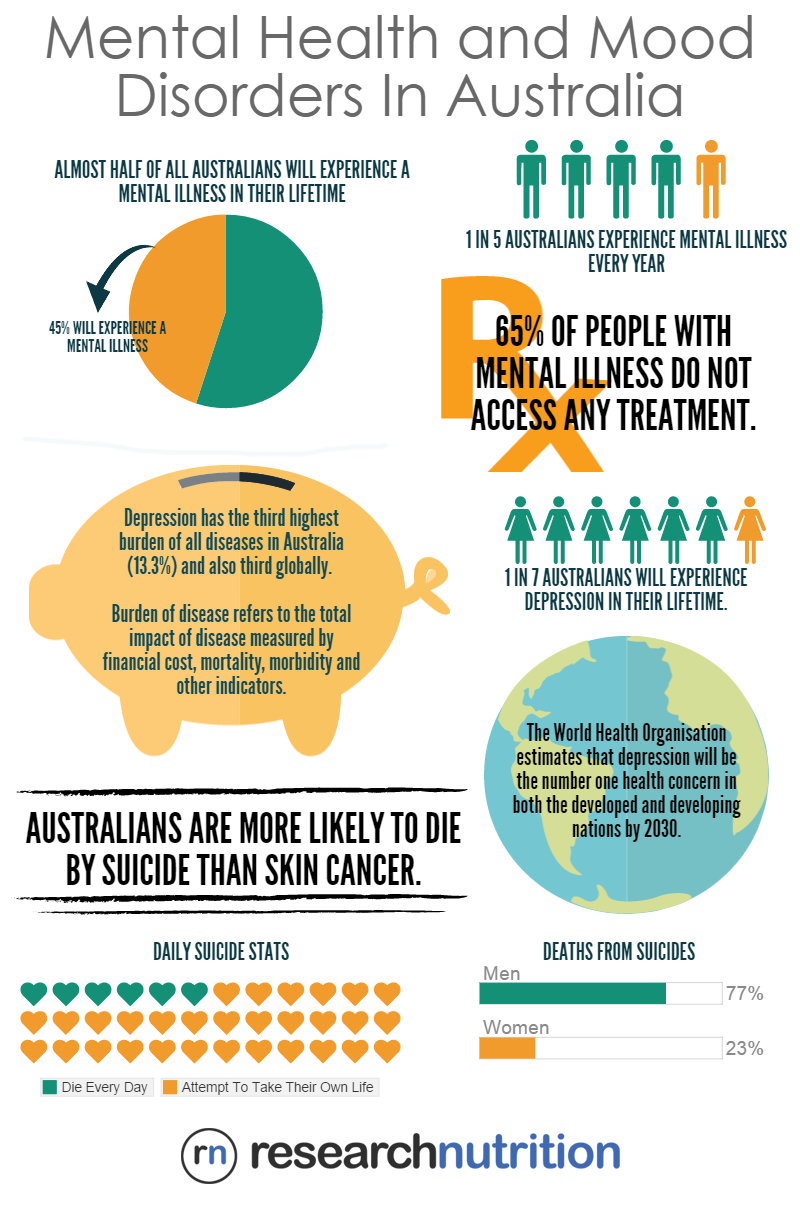WHAT MAY BE HELPFUL IN DEPRESSION?
Evidence for the Benefits of Exercise in Managing Depression
- Regular exercise can be an effective way to relieve some forms of depression and is often a neglected strategy in the management of depression.
- Numerous studies have shown that people who exercise regularly experience fewer symptoms of depression and anxiety than those who do not exercise regularly
- Several trials have shown that regular exercise of moderate intensity can be an effective adjunctive treatment by itself for both melancholic and non-melancholic depression
- Two trials have found that 16 weeks of regular exercise is equally effective as antidepressant medication in the treatment of mild to moderate depression
- Research also suggests that exercise can further assist depression in individuals with depression who have only partially responded to an antidepressant medication
- Both aerobic exercise (e.g. brisk walking, cycling or jogging) and resistance or strength training (e.g. weight-lifting) have been found to be helpful in treating depression
Omega 3 May Have An Impact On Your Mood
- There are several lines of evidence that suggest that omega-3 consumption may be associated with mood disorders. Research suggests that omega-3 is related to a number of biological processes that have been found to be associated with brain functioning.
- Omega -3 concentrations influence the production of ‘neurotrophic (or neuroprotective) factors’ which regulate the growth of new brain cells
- Omega-3 concentrations can affect gene expression in the brain
- Omega-3 and omega-6 are both metabolised by the same pool of enzymes. Some of the products of omega-3 metabolism are anti-inflammatory, while the products of omega-6 metabolism are pro-inflammatory; increased inflammatory processes have been found to be associated with both depression and other chronic diseases such as cardiovascular disease
- DHA is a major structural component of the brain and the ratio of DHA to omega-6 and other fats in the brain affects the ability of the brain cells to communicate with each other
- Full Black Dog Institute Fact Sheet found HERE
Establish a Good Support Network
- If you are worried that someone is depressed or has bipolar disorder, try talking to them about it in a supportive manner and suggest that they see a mental health professional
- If they don’t want to seek help, explain the reasons for concern and perhaps provide them with some relevant information
- Young people are particularly vulnerable to depression
- Patience, care and encouragement from others are all vital to the person who is depressed
- If a loved one talks of suicide, encourage them to seek help immediately from a mental health professional
- Depression can take a toll on carers and close family members – it is important for these people to take care of themselves as well
*Statistics and suggestions direct from the Black Dog Institue Website www.blackdoginstitute.org.au
Where to Get More Information
The Black Dog Institute
The Black Dog Institute is a world leader in the diagnosis, treatment and prevention of mood disorders such as depression and bipolar disorder.
Hospital Road, Prince of Wales Hospital, Randwick NSW 2031
(02) 9382 4530 Email: [email protected]
www.blackdoginstitute.org.au
By Alex Hills
Alex has been a qualified naturopath and in the natural medicine field for over a decade. During this time has had the opportunity to experience almost every aspect of the industry. She has been in clinical practice, vitamins manager at a pharmacy, marketing coordinator for an organic skin care company as well as training other practitioner in an area manager role.
Alex now works full time at Research Nutrition’s Brisbane head office as the Sales and Marketing Coordinator to satisfy her inner tech-nerd and passion for educating both customers and patients in a fun and informative way!








Leave a Reply
Want to join the discussion?Feel free to contribute!